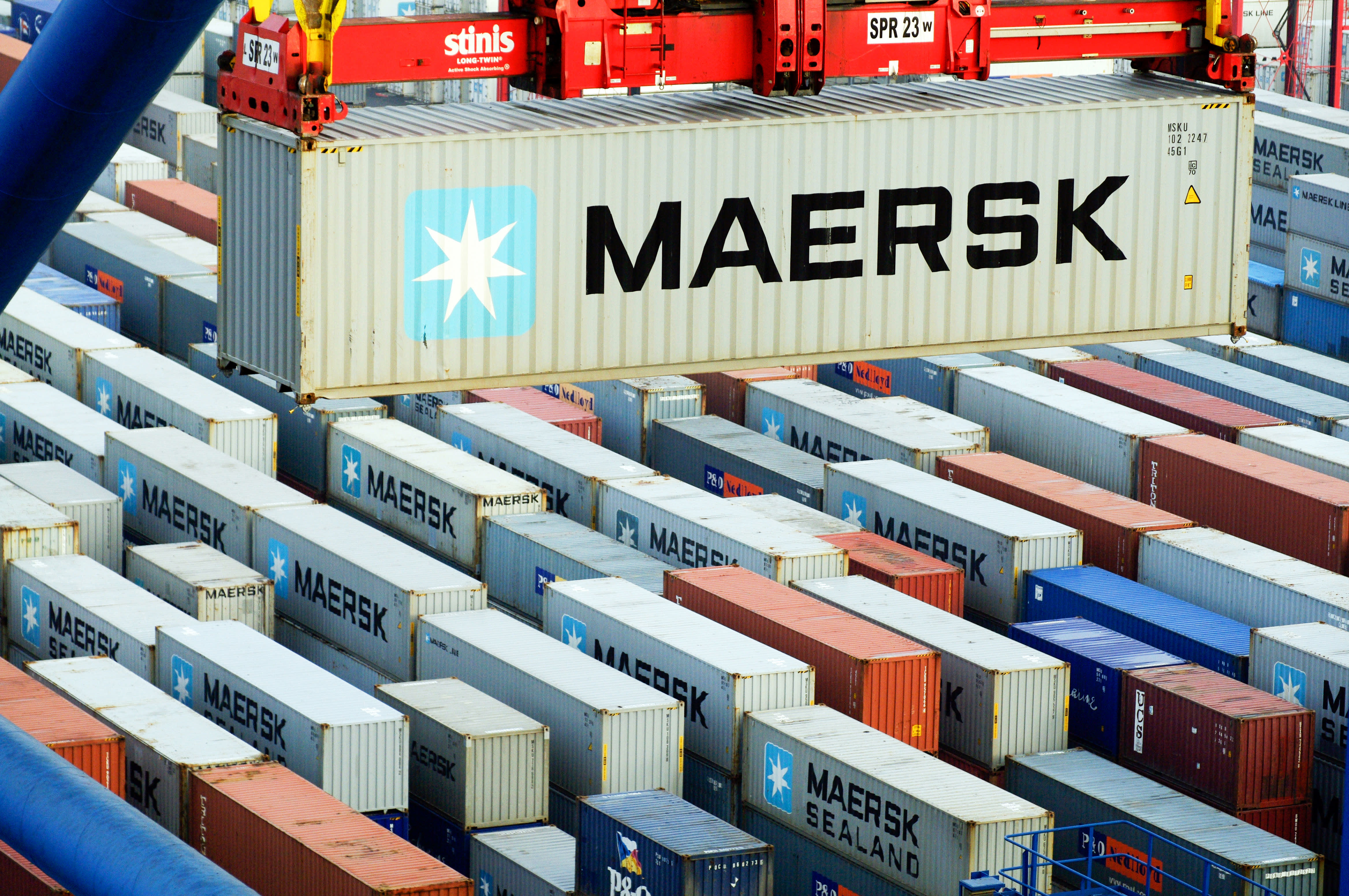-By Economic Affairs Correspondent

(Lanka-e-News -13.Feb.2025, 11.45 PM)
Imagine walking into a Sri Lankan restaurant, ordering a rice and curry, and being told, “Sorry, we only accept payments in US dollars.” You’d laugh, right? After all, this is Sri Lanka, where the national currency is the Sri Lankan Rupee (LKR).
But what if the same absurd demand is made by international shipping companies? Well, that’s exactly what’s happening. Major shipping agents—especially industry giant Maersk—are allegedly refusing to accept payments in rupees and demanding that Sri Lankan businesses cough up dollars instead.
The problem? Not only is this blatantly illegal, but it also threatens the country’s financial sovereignty.
According to Sri Lanka’s Foreign Exchange Act, all local transactions must be conducted in Sri Lankan Rupees unless explicitly permitted by the Central Bank of Sri Lanka (CBSL). Despite this, shipping agents are allegedly turning a blind eye and operating under their own private “dollar-only” policies.
This practice raises serious legal red flags:
1. Violation of Sri Lankan Monetary Law – No foreign or local company can refuse the country’s legal tender.
2. World Trade Organization (WTO) Infringement – This forced dollarization discriminates against Sri Lankan businesses, violating global trade policies.
3. Potential Breach of US Treasury Regulations – Even under US law, companies cannot enforce dollarized transactions where local currency is the norm.
It begs the question: If China, Malaysia, and Singapore all enforce local currency payments, why should Sri Lanka be any different?
Shipping companies enjoy near-monopolistic power in Sri Lanka. With limited alternative options, exporters have little choice but to comply with their demands—often at an unfair exchange rate, which further devalues the rupee.
Here’s the reality:
Sri Lankan exporters are forced to convert their rupees into dollars, adding unnecessary costs to their operations.
Shipping companies profit from forex transactions, making exporters bear the brunt of currency fluctuations.
The continued demand for dollars worsens Sri Lanka’s foreign exchange crisis.
It’s a clever game, but one that’s crippling local businesses and unfairly strengthening global shipping firms.
It’s time for Sri Lanka’s exporters, policymakers, and legal activists to push back against this predatory practice. Here’s what needs to be done:
1. Legal Action Against Shipping Agents – If these companies refuse rupee payments, they should face hefty fines and possible bans from operating in Sri Lanka.
2. Petition the WTO – Sri Lanka must lodge a formal complaint against this discriminatory currency enforcement.
3. Escalate to the US Treasury – Since these companies operate under international regulations, a direct complaint to the US Treasury could apply global pressure.
4. Government Intervention – The CBSL and Finance Ministry must step in and enforce local currency compliance immediately.
Sri Lanka is not a colony of international shipping firms, and its businesses should not be held hostage to an illegal dollarized economy. If global shipping companies refuse to respect local monetary laws, they shouldn’t be allowed to operate here—simple as that.
So, to the shipping giants making unfair demands: Either accept Sri Lankan Rupees, or don’t bother docking at our ports.
---------------------------
by (2025-02-13 20:19:34)
Leave a Reply